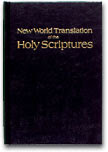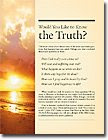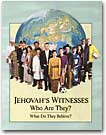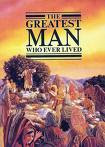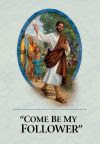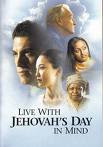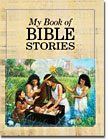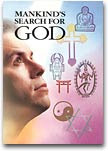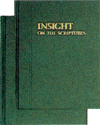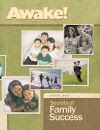
Someone in the field ministry asked me what the Gospel was to Jehovah's Witnesses. I answered that it was what Jehovah God was going to do for all faithful mankind through Jesus Christ as King. I told him that the first thing we'd talk about was who God was and the blessings that He is going to pour out on mankind in the very near future.
He told me I was wrong. He told me that the Gospel was the Jesus Christ came to the earth, died for our sins, and was resurrected. Well, I was confused and realized that maybe I didn't know what the Gospel really was. I went home and studied for the next few hours and came up with many Scriptures.
The Good News of the Kingdom is very important. So important that God wants everyone to hear it. If it was not being preached, God would hold off bringing the end. (Matthew 24:14) This is one of the three terms presented as the Good News more then once in the Holy Scriptures. To Jehovah's Witnesses, this aspect of the Good News is the one that is preached most often because of the imminence of its arrival. (Mark 1:15) Also, preaching this Kingdom is a direct command from the Lord Jesus Christ himself.
Jesus said, "Do not go among the Gentiles or enter any town of the Samaritans. Go rather to the lost sheep of Israel. As you go, preach this message: 'The kingdom of heaven is near.' Heal the sick, raise the dead, cleanse those who have leprosy, drive out demons. Freely you have received, freely give." (Matthew 10:7, New International Version) Also, Christ made it his object to preach this Gospel. The Bible says of him, "He went journeying from city to city and from village to village, preaching and declaring the good news of the kingdom of God."-Luke 8:1
Jesus made sure that everyone had the opportunity to hear his message. In fact, in all four gospel accounts, the Kingdom of God is mentioned 109 times, not counting all of the other books of the Old and New Testaments. Surely, the Kingdom Message is an important one.
The Good News of Jesus Christ is another aspect of the Good News mentioned more then once. This is important because it fulfills prophecy. (1 Corinthians 15:3-5) It is also important because of what Jesus Christ did. "While we were yet sinners, Christ died for us." (Romans 5:8) Yes, "He is a propitiatory sacrifice for our sins, yet not for ours only but also for the whole world’s."-1 John 2:2
Jesus' death opened the way to salvation for our sins. We were all sinners, all subject to death. (James 1:15) In fact, we were deserving of that very thing, death. However, when we wash our robes in the blood of the Lamb, we have forgiveness of sins.-Revelation 7:14
In fulfilling OT prophecy, only Christ could have done that. There are many, many numerous prophecies that speak of the coming of the Savior and, although many claimed to be him, none could do what he did. He had God's backing and His spirit to help him because he truly was the promised Messiah.-Matthew 3:16-17
This is the last thing in the Bible called the Good News more then once. This one is important because it helps us to realize that we have to make known who the Almighty Father really is. The Bible names God in the book of Psalms. The King James Version has it as this: "That men may know that thou, whose name alone is JEHOVAH, art the most high over all the earth." (Psalm 83:18) Jehovah is a God "merciful and gracious, slow to anger and abundant in loving-kindness and truth."-Exodus 34:6
The most dominate quality of God's is love. In fact, God is love personified. (1 John 4:8, 16) Everything about Him is loving. All of His dealings acknowledge this fact. (Genesis 6:7-14, 17-22; 19:12-17) Also, God is perfect in justice, power, and wisdom. (Deuteronomy 32:4; Isaiah 40:26; Romans 11:3) He has myriads upon myriads of angels at His command. (Genesis 3:22-24; Psalm 148:2; Jude 14) He is a good God, truly looking out for all of His people on the earth.-Matthew 5:45
Most of all, though, is the fact that Jehovah is deserving of all our praise. (Revelation 4:11) The Name of Jehovah is a Name that deserves our attention. Unfortunately, that will not be the case for long. Jehovah's name has been forgotten by the very people who claim to worship Him. Jehovah's Witnesses have tried to warn them and they will not pay attention. When Jehovah reveals it to them all, it will be to late.-Ezekiel 38:23; Philippians 2:9-11
These two things go hand-in-hand. Why? "By this undeserved kindness, indeed, you have been saved through faith; and this not owing to you, it is God’s gift. No, it is not owing to works, in order that no man should have ground for boasting." (Ephesians 2:8-9) Many Bible translations have "grace" instead of undeserved kindness here. This is a mistranslation of the actual Greek word--a mistranslation that has started its own doctrine.
The original Greek word, Kha'ris implies "a favor freely done, without claim or expectation of return." [5] and "the idea of kindness which bestows upon one what he does not deserve." [6] Obviously, what undeserved kindness is is the gift that God gave us by sending His Son to die for us. That was the "grace" or undeserved kindness, not an after-affect of Christ's death which we can now receive or a mystic force that comes into your heart when you ask for it as the churches teach. That is why we were saved by undeserved kindness. We were sinners. Christ didn't have to die for us. Actually, we didn't deserve Christ to die for us. We deserved death, pure and simple.
Paul said to Titus, "For the undeserved kindness of God which brings salvation to all sorts of men has been manifested." (Titus 2:11) Many say that Jehovah's Witnesses try to earn their salvation by works but that is not true. We earn our salvation by putting our faith in Jesus Christ sacrifice, which was an undeserved kindness on his part. We have to believe that Christ died for us and have faith that his death will actually save us. We continue to do works because we know that our faith is shown by our works and our faith is actually dead without works. (James 2:18-26) When something is dead, it is non-existent. Only a shell of its former life remains. So only a shell of our former faith remains. And if we do not have faith, it is impossible to please God.-Hebrews 11:6
What else could bring us more joy and even peace then what we have discussed above? Yes, the Good News is a peace-inspiring teaching and a joy-inciting hope. The Apostle Paul said to us, "Always rejoice in the Lord. Once more I will say, Rejoice!" -Philippians 4:4
The peace that the Good News inspires in us is from the same God who inspired Paul to write: "Therefore, since we have been justified through faith, we have peace with God through our Lord Jesus Christ." (Romans 5:1) Knowing that we were once sinners alienated from God but now we are reconciled brings Jehovah's Witnesses great peace. We have a hope to live forever on a paradise earth.
Joy and Peace are very important in the life of a Christians striving to walk with God and Christ with holy spirit. If we manifest those in our lives we are actually manifesting two of the aspects of that spirit. (Galatians 5:22-23) Many times throughout the NT, the writers emphasize our joy and peace. (2 Corinthians 8:2; Philippians 1:26; Philemon 1:3; 3 John 14) May we always have joy and peace in our Christian walk!
 The Good News in Your Life
The Good News in Your LifeWith all of this in mind, how would you like to gain salvation by undeserved kindness through Jesus Christ, sent from God, so that we might live under the Kingdom and have joy and peace? If you feel like that is something you would like to learn about this, contact Jehovah's Witnesses, the ones who practice true Christianity, locally in your area or click here!
References
[1] Matthew 4:23
[2] Mark 1:1
[3] Romans 1:1
[4] Acts 20:24; Ephesians 1:13
[5] "Synonyms of the New Testament" by Scholar R.C. Trench
[6] "A Greek-English Lexicon of the New Testament" by Joseph H. Thayer, a translator who worked on the American Standard Version
[7] Ephesians 6:15; Luke 2:10















